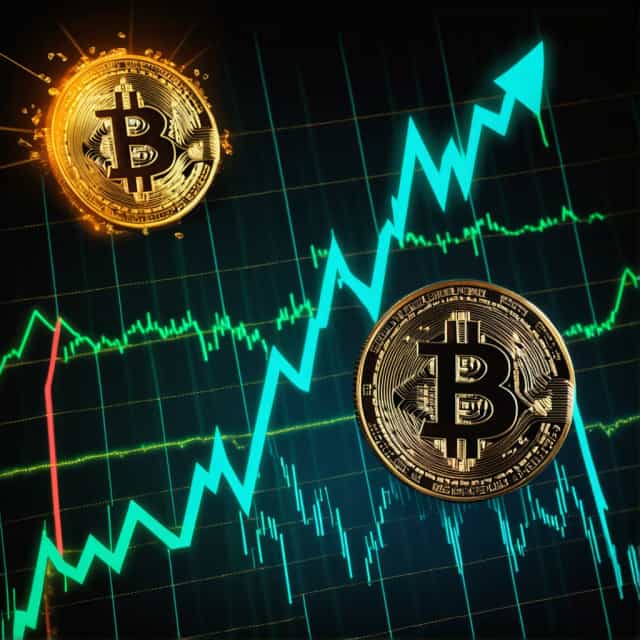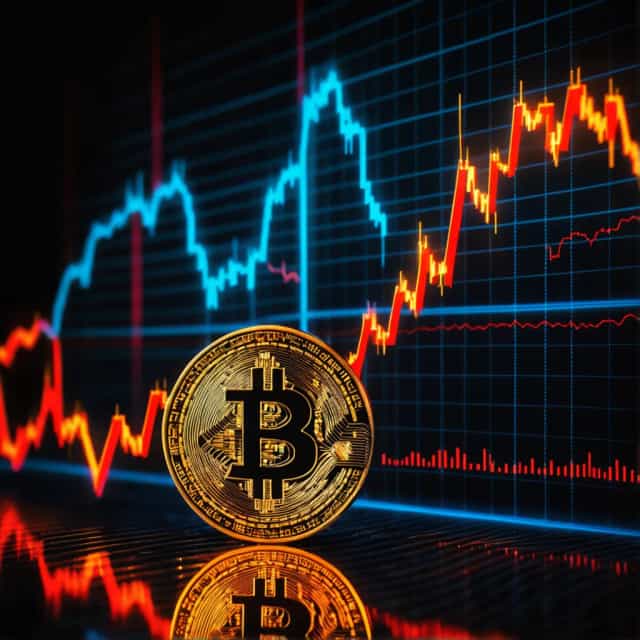
출처: Block Media
Kospi Steadies at 3,800 Amid Profit-Taking and Heightened Geopolitical Risks
The Kospi Index held steady at the 3,800 level on October 22, as investor sentiment turned cautious following a streak of five record-breaking sessions. Concerns over geopolitical tensions stemming from North Korea's provocations and profit-taking activity were key factors limiting further gains.
As reported by the Korea Exchange, the Kospi was trading down 22.42 points, or 0.59%, at 3,801.42 by 9:44 a.m. The index initially opened higher, registering a modest rise of 3.39 points, or 0.09%, to 3,827.23 compared to the prior session's closing value of 3,823.84. However, these gains were short-lived, as the index swiftly reversed course, dipping into negative territory and remaining near flat.
Retail Investors Support Kospi Amid Institutional Selling Pressure
Retail investors emerged as the primary support for the index, buying a net 469 billion won worth of shares. By contrast, foreign investors and institutional participants were net sellers, offloading 227.8 billion won and 222.6 billion won worth of stocks, respectively. This selling activity exerted downward pressure on the broader market, despite the resilient buying from individual investors.
Sector Performance Highlights: Gains and Declines
The performance across industries was mixed, with chemicals (+2.18%) and transportation equipment & parts (+1.34%) posting notable gains. Meanwhile, the medical precision instruments (-1.37%) sector and construction (-1.06%) sector led the declines.
Among key blue-chip stocks, LG Energy Solution advanced 2.52%, and Hanwha Aerospace surged by 2.98%, contributing positively to the market. However, several heavyweight names experienced losses, including Doosan Enerbility (-1.88%), Samsung Electronics (-0.62%), and SK Hynix (-0.73%).
Analyst Commentary: Medium-Term Confidence Versus Overheating Risks
Han Ji-young, a senior researcher at Hanwha Securities, highlighted the optimistic outlook for the Kospi, largely driven by expectations of a strong earnings cycle spearheaded by the semiconductor sector into next year. However, she cautioned investors about potential short-term overheating risks, pointing to recent price trends as signs of heightened volatility.
Kosdaq Declines Amid Weak Sentiment: Optimism Tempered by Valuation Context
The Kosdaq Index mirrored the Kospi’s subdued sentiment, falling 4.55 points, or 0.52%, to 867.95 during the morning session. Opening at 872.51—virtually unchanged from its prior close of 872.50—the index later drifted downward into negative territory.
Similar to the Kospi, retail investors provided support to the Kosdaq by purchasing a net 165.5 billion won worth of shares. Foreign investors and institutions, however, applied selling pressure, divesting 126.2 billion won and 26.5 billion won worth of equities, respectively.
Sector Trends in Kosdaq: Broad Weakness Prevails
Sector performance across the Kosdaq was largely negative, with telecommunications (+0.37%) being the only sector to register gains. Transportation equipment & parts (-1.62%) and entertainment & culture (-1.03%) saw the steepest declines in trading activity.
Analyst Insights: Kosdaq Valuations Within Bounds
An industry analyst provided perspective on the current valuation of the Kosdaq Index, comparing it to historical boom periods in 2006–2007 and 2020–2021, where the price-to-earnings ratio peaked at 13 times. According to the analyst, current valuations are not in excessive or irrational territory, implying room for sustainable growth. Nevertheless, the expert warned short-term-focused traders to exercise caution, emphasizing the importance of risk management amid market uncertainties.
Mixed Results Among Kosdaq Heavyweights Reflect Uneven Momentum
Major contributors on the Kosdaq posted contrasting results. EcoPro delivered an impressive gain, soaring 13.44%, while EcoPro BM and PharmaResearch climbed 3.57% and 3.35%, respectively. On the negative side, HLB dropped 2.29%, ABL Bio fell 1.14%, and Rainbow Robotics declined 1.03%, reflecting uneven sentiment among top-listed stocks.
Currency Markets: South Korean Won Weakens Against U.S. Dollar
In the foreign exchange market, the South Korean won exhibited weakness against the U.S. dollar. The won-dollar exchange rate opened at 1,431.5 won per dollar, marking an increase of 3.7 won compared to the previous session’s close of 1,427.8 won. The currency’s depreciation highlights growing concerns over global economic stability and market uncertainties.
Conclusion: Balancing Optimism With Market Risks
The Kospi and Kosdaq indices are witnessing a delicate balance between medium-term optimism and heightened caution over geopolitical threats and short-term overheating risks. While retail investors remain robust in their investment activity, institutional and foreign selling are tempering market gains. Analysts underline the importance of risk management while maintaining confidence in favorable earnings trends, particularly within the semiconductor sector. For traders and investors, vigilance remains key amid fluctuating valuations and external pressures shaping market sentiment.










